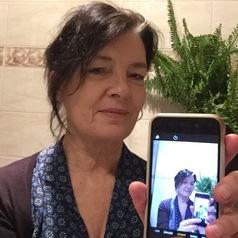
Anya Daly
Senior Lecturer in Philosophy and Ethics, University of Tasmania
Anya is Senior Lecturer in Philosophy and Ethics in the School of Humanities, University of Tasmania. Anya’s research interests are wide-ranging. She investigates the intersections of phenomenology with philosophy of mind, ethics, the philosophy of perception, aesthetics, the philosophy of psychiatry, embodied and social cognition, enactivism and Buddhist Philosophy.
She has published in ethics, aesthetics, philosophy of psychiatry, feminism, social cognition, philosophy of psychology, philosophy of perception, ontology and animal ethics.
For my publications - please see my UTAS profile
https://www.utas.edu.au/profiles/staff/philosophy-and-gender-studies/anya-daly
Less ![]()
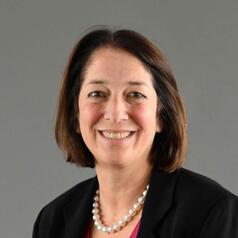
Anya Schiffrin
Senior Lecturer in Discipline of International and Public Affairs, Columbia University
Dr. Anya Schiffrin is the director of the Technology, Media, and Communications at Columbia University’s School of International and Public Affairs and a lecturer who teaches on global media, innovation and human rights. She writes on journalism and development, investigative reporting in the global south and has published extensively over the last decade on the media in Africa. More recently she has become focused on solutions to the problem of online disinformation, earning her PHD on the topic from the University of Navarra. She is the editor of Global Muckraking: 100 Years of Investigative Reporting from Around the World (New Press, 2014) and African Muckraking: 75 years of Investigative journalism from Africa (Jakana 2017). She is the editor of Media Capture: How Money, Digital Platforms and Governments Control the News (Columbia University Press 2021)
Less ![]()
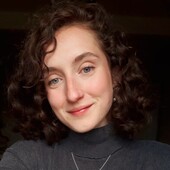
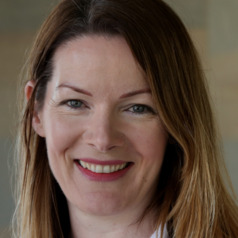
Aoife Duffy
Senior Lecturer, University of Essex
Dr. Aoife Duffy is an interdisciplinary human rights scholar affiliated with University of Essex’s Human Rights Centre/School of Law. Prior to this posting, she held lectureships at the National University of Ireland Galway and Dublin City University. Aoife has been the recipient of various awards and grants, including the prestigious Department of Foreign Affairs Andrew Grene scholarship in conflict resolution for her doctoral studies. With a broad horizon of research interests, Aoife has published on topics ranging from indigenous peoples’ rights to states of emergency in such journals as Human Rights Quarterly, the International Journal of Refugee Law, and the International Journal of Transitional Justice. Her transitional justice scholarship examining major paradigm shifts has led to new historiographies shedding light on legacy issues in various case studies. Several of these have been published, including the ground-breaking monograph - Torture and Human Rights in Northern Ireland: Interrogation in Depth. In tandem with legal histories, she has accumulated expertise on intelligence/security operations, detention without trial, interrogation, and torture.
Aoife’s interdisciplinary scholarship has evolved into other areas: producing original work on the interplay between photography/visual framing and international law, developing a conceptual framework on universality and rights recognition, and an output on reproductive autonomy. Adding to the canon of critical pedagogy, her latest journal article devises a fresh approach to human rights education by drawing on multiple disciplines. Current projects focus on the modalities through which the past is understood in the present; accessed through oral histories, official and non-official archives, legal documents, historic testimonies, memoires, and contemporary understandings of the past. A particular sensitivity is given to excavating subaltern or marginalised narratives that might otherwise be lost from the socio-historical record.
Aoife's academic research and activism is animated by social justice goals - in particular, the achievement of substantive equality and the elimination of discrimination in society. In order to address structural injustice, systemic marginalisation and exclusion, human rights practice and scholarship is strengthened by different disciplinary perspectives. In that regard, she would welcome human rights PhD supervision in a cross disciplinary arrangement.
In 2022, Aoife was invited to participate in the International Expert Panel: State Impunity and the Northern Ireland Conflict (due to report in 2023). She has also acted in an advisory/consultative capacity for various stakeholders on legacy issues stemming from the Northern Ireland conflict.
Less ![]()
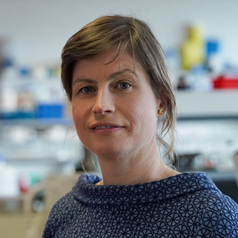
Aoife Morrin
Associate Professor of Analytical Chemistry, Dublin City University
My research is focussed on how we can use cutting-edge analytical measurements in new types of health diagnostics. I am interested in designing sensors that can interact with the human body in non-invasive ways. Wearable sensors that sit on the skin are of particular interest as we believe the chemical markers available on the skin surface offer great opportunities for new sensors. The gas or volatile emission from skin is being studied in my group to understand its origin and how it links to human health and well-being.
In terms of sensor development, we have materials science research underway related to responsive biomaterials that are candidates for targeting health markers specifically from skin tissue. These include hydrogels, conducting polymers and various nanomaterials.
Published including >80 peer-reviewed papers, several book chapters and 1 book. (h-Index: 29; citations>3000).
Less ![]()
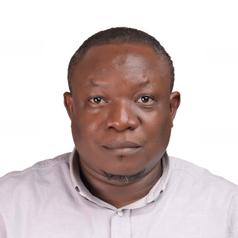
Aoko Oluwayomi
PhD Candidate (Exercise Physiology), University of Lagos
Patient focused and responsible Physiotherapist and researcher with 20+ years of experience in epidemiology studies and examining patients rehabilitation needs, developing therapy plans and goals across home healthcare, in-patient and out-patient health facilities. Distinguished client-facing skills and experience working closely with healthcare professionals and researchers to assess and treat complex conditions. At Ageless Physical Rehabilitation Center, spearheaded and maintained Lagos State, Nigeria accreditation. Lead researcher at Center for Research, Education and Development in physical Rehabilitation.
Leads the research team of SUNRISE STUDY Nigeria in the first international cross-sectional study that aims to determine the proportion of 3- and 4- year-old children who meet the WHO Global Physical Activity Guidelines in the Early Years and how they differ by gender, urban/rural location and/or socioeconomic status, executive functions, motor skills and adiposity as potential correlates of 24-hour movement behaviors.
Less ![]()
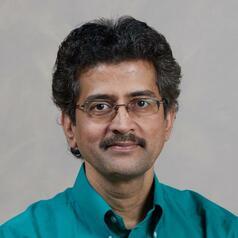
Apparao Rao
Professor of Physics, Clemson University
Apparao Rao is currently the R. A. Bowen Professor of Physics and a former Associate Dean for Discovery in the College of Science. He is a Fellow of four prestigious societies: the American Physical Society and American Association for the Advancement of Science, National Academy of Inventors, and the Materials Research Society. He received his PhD in physics from University of Kentucky in 1989 and subsequently served as a post-doctoral research associate at MIT until 1991. Later, he joined University of Kentucky as a research assistant professor before coming to Clemson in 2000. His laboratory is dedicated to understanding the atomic, magnetic, electrical, optical, and biophysical/biochemical properties of micro- and nano-structured materials. Rao’s research interests include the characterization and applications of carbon nanotubes, semiconducting nanobelts, nanowires and thermoelectric materials. His group's strength lies in the ability to synthesize several nano-structured materials (using various growth techniques such as electrical arc, chemical vapor deposition and pulsed laser vaporization) and explore the fundamental physics in nanostructured systems (using a wide range of characterization techniques such as Raman scattering, infrared, UV-visible, fluorescence, non-linear optical spectroscopy, harmonic detection of resonance method, atomic force microscopy, electron microscopy and electrical transport measurements). Recently, his team has been developing energy harnessing and energy storage technologies, and he has served as the principle investigator on grants funded by NSF, NASA, SC EPSCoR and industry.
Less ![]()
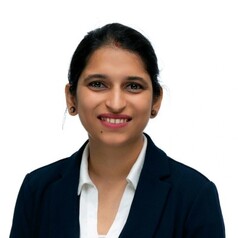
Apramita Devi
Postdoctoral researcher in food science and technology, University of California, Davis
A dedicated and passionate researcher with over 10 years of experience in top academic institutions in India, Taiwan, and the USA. My expertise lies in Food Science and Technology, focusing on analytical chemistry, food and environmental chemistry, and fermentation technology.
My research journey has predominantly revolved around unraveling the complexities of phenolic metabolomics, particularly in wine chemistry. I have diligently explored the intricacies of food matrices and environmental samples using advanced analytical techniques such as mass spectrophotometry and chromatography.
I have spearheaded multifaceted research projects, showcasing my proficiency in project management and interdisciplinary collaboration. From investigating the chemistry of millet dietary fibre for food security to optimizing fermentation processes, my diverse portfolio underscores my dedication to tackling pressing global food challenges.
Beyond the confines of the laboratory, I have actively mentored students and contributed to academic service initiatives, fostering a culture of innovation and excellence.
Less ![]()

April Johnson
Associate Professor of Political Science, Kennesaw State University
Originally trained as a social psychologist, my research broadly focuses on the contextual and psychological mechanisms that influence electoral behavior, citizen engagement, and political communication. Currently, my scholarly works investigate how disability status affects political attitudes and outcomes, with publications in Politics, Groups, and Identities, Policy Studies, and the Journal of Health Politics, Policy and Law.
Less ![]()
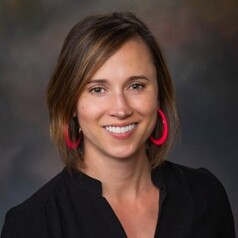
April Smith
Associate Professor of Psychological Sciences, Auburn University
April Smith is the director of the Research on Eating Disorders and Suicidality (REDS) Laboratory at Auburn University. She received her PhD from Florida State University’s Clinical Psychology Program in 2012 and completed her clinical residency at the University of California, San Diego. Dr. Smith was an associate professor at Miami University before starting at Auburn in 2021. She was named a 2016 Rising Star by the Association for Psychological Science. Dr. Smith has received over $6.5 million in funding from the Department of Defense and NIMH to support her work.
Less ![]()
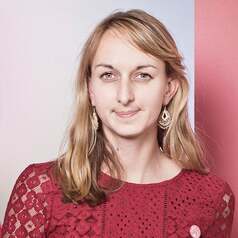
April J Burt
Research Associate, University of Oxford
April spent eight years in conservation management and research positions in the western Indian Ocean region, including as the science coordinator for Aldabra Atoll, a marine UNESCO world heritage site. April completed her PhD at the University of Oxford and now specialises in marine protected area management in the Western Indian Ocean. This role is geared towards improving the management of island ecosystems to enhance their resilience to the impacts of climate change and other threats.
Less ![]()
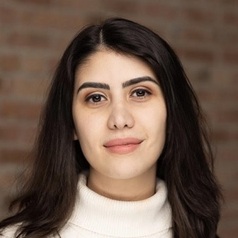
April Nisan Ilkmen
PhD Candidate in Couple and Family Therapy, Adler University
After completing a Bachelor of Science degree in Psychology at the University of Ottawa, April Ilkmen received a Master of Arts in Couple and Family Therapy from Adler University. She is an Associate Licensed in Marriage and Family Therapist in Illinois, and is currently enrolled in Adler’s renowned Ph.D. program in Couple and Family Therapy. April grew up in Turkey, has lived in Canada, and now resides in the U.S. She speaks English, Turkish and French.
Less ![]()
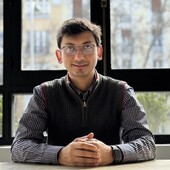
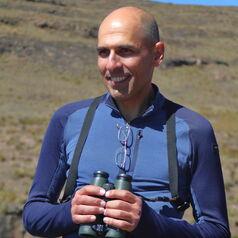
Ara Monadjem
Full Professor in the Department of Biological Sciences, University of Eswatini
Ara Monadjem is Full Professor in the Department of Biological Sciences at the University of Eswatini, Eswatini, where he has been lecturing in zoology since 1993, and a fellow of the Mammal Research Institute in the Department of Zoology & Entomology at the University of Pretoria, South Africa. Raised in Eswatini, his research has taken him across much of Africa, and has included ground-breaking expeditions to largely undescribed regions in countries such as Liberia and Mozambique. His academic interests centre upon ecology and conservation, with a special focus on small mammals. He has published over 160 scientific articles, and among his eight books is the landmark Bats of Southern and Central Africa, also published by WUP. In his spare time, Ara enjoys bird watching and cycling.
Less ![]()
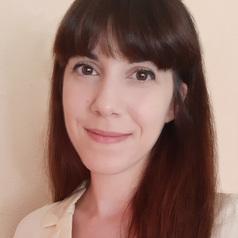
Arantxa Vizcaíno-Verdú
Phd Student in Communication, Universidad de Huelva
Arantxa Vizcaíno-Verdú is Predoctoral Fellow (FPU) at the University of Huelva (Spain), Communication PhD Candidate, and researcher in transmedia storytelling, fandom and pop culture on social media. M.A. in Communication and Audiovisual Education (UHU), Bachelor Degree in Advertising and Public Relations (UA), and Certificate of Higher Education in Plastic Arts and Design – Illustration (Massana School of Barcelona). Professor on Advanced Research Methods in Social Sciences (UHU/UNIA, Spain), and Key Regional Leader of the 'TikTok Cultures Research Network'. She is Researcher of the Influencer Ethnography Research Lab (IERLab), the Research Group ‘Agora’ (Andalusian Research Plan: HUM-648), the media literacy research network 'Alfamed', and the Comunicar Group.
Less ![]()
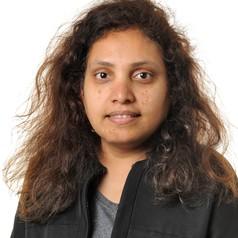
Aravinda Meera Guntupalli
Senior Lecturer in Global Health, University of Aberdeen
Research Areas: Health Inequalities (with a special focus on protected characteristics), Nutritional Transition & Noncommunicable Diseases, Non-monetary Indicators of Poverty & Health in Later Life, Quantitative Research Methods and Historical Perspective
Less ![]()
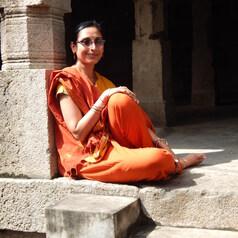
Archana Venkatesan
Professor of Religious Studies and Comparative Literature, University of California, Davis
Archana Venkatesan is Professor of Religious Studies and Comparative Literature at the University of California, Davis. Her research interests are in the intersection of text, performance, and visual culture in South India, and in the translation of Tamil religious poetry into English. Her translations are inflected and inspired by extensive fieldwork in the temples of South India, where Tamil devotional poetry continues to be read, recited, interpreted, and performed. Her current research (begun in 2005) is on the annual Festival of Recitation celebrated at a network of eleven temples in Tirunelveli District, Tamil Nadu. She is the author of The Secret Garland: Āṇṭāḷ’s Tiruppāvai and Nācciyār Tirumoḻi (Oxford University Press, 2010 and HarperCollins, 2015), A Hundred Measures of Time: Nammāḻvār’s Tiruviruttam (Penguin Classics, 2014), Endless Song: Nammāḻvār’s Tiruvāymoḻi (Penguin Classics 2020), and with Crispin Branfoot, Andal’s Garden: Art, Ornament and Devotion in Srivilliputtur (Marg 2016). Her translation of Endless Song received the Lucien Stryk Prize for Asian Translation from the American Literary Translators Association (2021) and the AK Ramanujan Translation Prize from the Association of Asian Studies (2022). She is one of the translators of Kampaṉ’s twelfth century Tamil epic, Irāmāvatāram, for the Murty Classical Library, She served on the editorial board of the Murty Classical Library of India from 2017-2024. In collaboration with noted South Indian classical vocalist, Sikkil Gurucharan, Archana performs her translations guided by the principles of Indic performative and interpretive practices. She served as the Chair of the Department of Religious Studies from July 2015 to June 2018 and again from 2019-2021. In recognition of her research, she was named a UC Davis Chancellor’s Fellow, a title she held from 2014-2019. Archana’s research has been supported by the John Simon Guggenheim Foundation, the National Endowment for the Arts (for the Tiruvāymoḻi translation), National Endowment for the Humanities, The American Institute of Indian Studies, The American Academy of Religion, and Fulbright. Her personal website is Poetry Makes Worlds (archana.faculty.ucdavis.edu). She was elected to the American Academy of Arts and Sciences in 2022.
Less ![]()
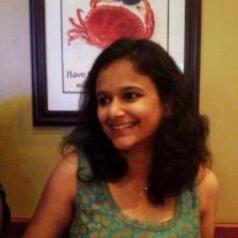
Archana Venkatesh
Assistant Professor of History, Clemson University
Professor Venkatesh's research interests lie at the intersection of South Asian history, oral history, women’s history, and history of medicine. She is currently working on her manuscript, titled Women, Medicine and Nation-building: The ‘Lady Doctor’ and Development in Twentieth Century South India, which examines the role of women doctors in the creation and extension of development initiatives in south India from 1919-1970. Her research has been supported by the American Institute of Indian Studies. Her teaching interests are in Women’s History, History of South Asia, World History, Oral History and Digital History.
Less ![]()
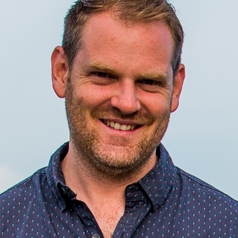
Archie Chapman
Senior Lecturer, School of IT and Electrical Engineering, The University of Queensland
Dr Archie Chapman is a Senior Lecturer in Computer Science in the School of IT and Electrical Engineering.
Archie develops and applies principled artificial intelligence, game theory, optimisation and machine learning methods to solve large-scale and dynamic allocation, scheduling and queuing problems. His recent research has focused on applications of these techniques to problems in future power systems, such as integrating large amounts of renewable power generation and using batteries and flexible loads to provide power network and system services, while making best use of legacy network and generation infrastructure.
Prior to joining UQ, Archie was Research Fellow in Smart Grids at the University of Sydney (2011-2019), and a postdoc fellow at the University of Southampton (2009-2010), where he completed his PhD.
Less ![]()
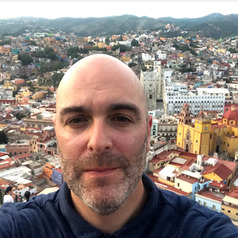
Archie McLean
Associate Professor of Journalism and Digital Media, Mount Royal University
Archie McLean is an associate professor of journalism and digital media at Mount Royal University. Before coming to Calgary, he served as the managing editor for CBC North, based in Yellowknife. He also worked as a reporter and editor at the Edmonton Journal, and served as the chair of journalism at MacEwan University.
Less ![]()
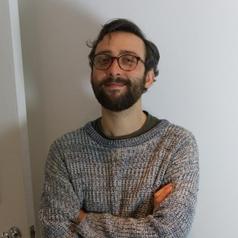
Archie Wolfman
PhD Researcher, Queen Mary University of London
I am currently working on a PhD in Film Studies at Queen Mary University of London. My research focuses on how Holocaust memory is represented in contemporary transnational cinemas. I examine a variety of films in different (trans)national contexts to show how the Holocaust today is understood in both dialogue and competition with other genocides and historical events, ranging from the Armenian genocide, the Roma genocide, as well as the ongoing Russian-Ukrainian war. I have an upcoming book chapter, about the online viral phenomenon of the "dybbuk box", to be published in a edited volume by De Gruyter on digital Holocaust memory. I have a BA in Film Studies for which I achieved a first, and an MA in Film and Philosophy, for which I achieved a distinction -- both from King's College London.
Less ![]()
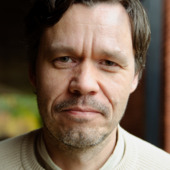
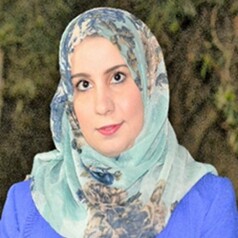
Areej Al-Hamad
Assistant professor, School of Nursing, Toronto Metropolitan University
Dr. Areej Al-Hamad is an Assistant Professor at the Daphne Cockwell School of Nursing, Toronto Metropolitan University. She holds a PhD from Western University and another PhD in Rural and Northern Health/Health Policy from Laurentian University. Dr. Al-Hamad's academic journey and professional pursuits are deeply rooted in enhancing healthcare and wellbeing of vulnerable population through innovative and empowering research and education, particularly focusing on women’s health, food and housing insecurities and the wellbeing of marginalized communities including immigrants and refugees.
Renowned for her commitment to community-based research, Dr. Al-Hamad has extensively explored the healthcare, settlement and integration, food and housing experiences, sense of belonging and economic inclusion including employment and entrepreneurship experiences of different refugee groups including Syrian, Afghan and Ukrainian refugee women, shedding light on their challenges and resilience. Her work transcends academic realms, actively contributing to the broader discourse on social justice and health equity. As peer reviewer for several journals and Associate Editor for the Diversity & Inclusion Research Journal, she leverages her expertise to elevate critical research in migration, integration, settlement and health and social sciences. Through her contributions in academia and community engagement, Dr. Al-Hamad exemplifies a steadfast dedication to social justice, equity, diversity, and the betterment of societal health structures. Dr. Al-Hamad supervised and mentored several undergraduate and graduate students. Dr. Al-Hamad has several affiliate positions including University of Calgary, Graduate Program in Immigration and Settlement Studies at TMU, and the MSc Occupational Health and Safety Program at TMU.
Dr. Al-Hamad has an extensive publication record in highly reputable journals. In addition, she has extensive experience in grant writing and successful funding achievements, such as the SSHRC Knowledge Synthesis Grant and the SSHRC Insight Development Grant, QNRF, FCS together of conducting several impactful knowledge translation events and forums. Dr. Al-Hamad is a certified JBI reviewer and has also been recognized with various awards, like the Western University/ Louise Rickwood PhD award for best and impactful dissertation and academic achievements, reflecting her commitment to excellence in research and academic endeavors. Dr. Al-Hamad sits on several committees including DCSN Quality Assurance and Scholarship, Research and Creativity (SRC) committee. Dr. Al-Hamad is currently involved in several international research projects, and she sits on the Toronto Metropolitan University's Research Ethics Board as a Reviewer.
Less ![]()
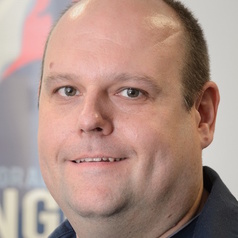
Arend Hintze
At the Hintzelab we are researching the evolution of natural and artificial intelligence. We use computational modeling to understand what environments and evolutionary pressures give rise to intelligence, and how cognitive mechanisms evolved. At the same time we want to bring about Artificial Intelligence by the means of evolution. The idea is that conventional approaches in software design will ultimately be limited to our understanding of the human brain, and we simply don’t want to wait until cognitive- and neuro-science figured “it” out, but instead use the one process that already made cognitive entities: evolution!
Less ![]()
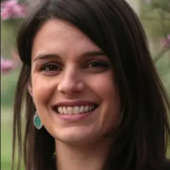
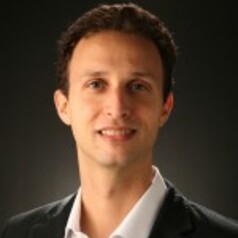
Ari Joskowicz
Associate Professor of History, Jewish Studies and European Studies, Vanderbilt University
Ari Joskowicz is a historian of modern Jewish and European history. He is especially interested in the interplay between Jewish history and transnational minority politics since the Enlightenment. His book The Modernity of Others: Jewish Anti-Catholicism in Germany and France (Stanford University Press, 2014) explores how German and French Jews in the long nineteenth century defined their own modernity and national belonging by criticizing the anti-modern politics of the Catholic Church. The book was a finalist for the Jordan Schnitzer Book Award (2015). His articles emerging from his interest in questions of religious polemics and secularism include: “Liberal Judaism and Confessional Politics of Difference in the German Kulturkampf” in the Leo Baeck Institute Yearbook (2005), “Heinrich Heine’s Transparent Masks: Denominational Politics and the Poetics of Emancipation in Nineteenth-Century Germany and France,” in the German Studies Review (2011), “The Priest, the Woman, and the Jewish Family: Gender and Conversion Fears in 1840s France,” in the Jewish Quarterly Review (2011), “Jewish Anticlericalism and the Making of Modern Jewish Politics in Late Enlightenment Prussia and France,” in Jewish Social Studies (2011), and “Selma the Jewish Seer: Female Prophecy and Bourgeois Religion in Nineteenth-Century Germany” in the Journal of Modern Jewish Studies (2014). He is also the co-editor of Secularism in Question: Jews and Judaism in Modern Times (University of Pennsylvania Press, 2015).
His new book, Rain of Ash: Roma, Jews, and the Holocaust (Princeton University Press, 2023) traces the unlikely entanglement of the histories of Jews and Romanies throughout the twentieth century, focusing on Western and Central Europe as well as the United States and Israel. The aim of this project is twofold: First, he explores the encounters between Jews and Romanies in various camps and killing fields during the Holocaust. Second, he seeks to understand how survivors and historians have spoken about Romani and Jewish suffering during the Second World War in relational terms and to explore the paradoxes that arise when victims of related persecution tell stories next to, and after, each other. Several articles develop themes from this project: “Romani Refugees and the Postwar Order” (Journal of Contemporary History, 2016), “Separate Suffering, Shared Archives: Jewish and Romani Histories of Nazi Persecution” (History & Memory, 2016), and “The Age of the Witness and the Age of Surveillance: Romani Holocaust Testimony and the Perils of Digital Scholarship” (American Historical Review, 2020).
His interest in the history of European minorities is also reflected in various other scholarly projects. He contributed to two EU studies on racism and antisemitism in contemporary Europe and translated G. C. Spivak’s essay “Can the Subaltern Speak?” into German together with Stefan Nowotny (Vienna, 2007). His work has been supported, among others by the Rosenzweig Minerva Research Center (Hebrew University, Jerusalem), the Lady Davis Fellowship Trust, the Center for Advanced Judaic Studies at the University of Pennsylvania, the American Philosophical Society, the American Society of Learned Societies (ACLS), the Vienna Wiesenthal Institute for Holocaust Studies, the Oxford Centre for Hebrew and Jewish Studies, and the United States Holocaust Memorial Museum.
At Vanderbilt, Professor Joskowicz teaches courses in modern European and Jewish history, including “The Holocaust,” “The Idea of Europe,” “Religion and Politics in Modern Europe,” “Perspectives on Modern Jewish History,” and “Conspiracy Theories and Rumors.”
Less ![]()
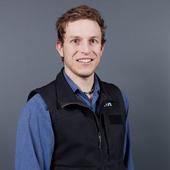

Ari Mattes
Lecturer in Media Studies, University of Notre Dame Australia
I received a PhD from the English department of the University of Sydney for my thesis, Action! America: The Impulse to Action in American Literature and Film.
Less ![]()
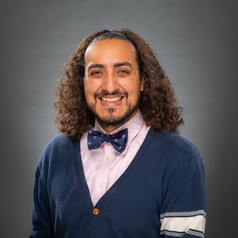
Ari Perez
Associate Professor of Civil Engineering, Quinnipiac University
Howdy! My name is Ari Perez, and I am originally from Honduras. I grew up mostly there, with a short spell in Rueil-Malmaison on the outskirts of Paris, where from a young age I became interested in engineering, infrastructure, and construction. After finishing my Civil Engineering degree and a short time working for my hometown's engineering department, I then did my graduate work at the University of South Carolina (Go Gamecocks!) where I studied Geotechnical Engineering, with my research centering on the reburial of archaeological sites for conservation purposes. After graduation in 2014, I joined the faculty at Quinnipiac University where I currently teach.
On a personal note, I am a huge Real Madrid (Hala Madrid!) and Taylor Swift (Fearless Stan) fan, and I enjoy spending my down time with my family.
Less ![]()
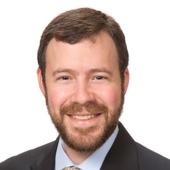
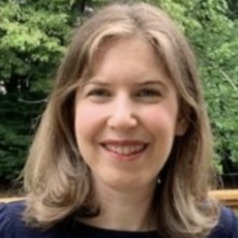
Ari Pinkus
Manager, American Communities Project, Michigan State University
I thrive at the intersection of ideas as a researcher, writer/editor, and project manager.
Currently, I collaborate on a few digital platforms. I am research scientist/manager for the American Communities Project based at Michigan State University, where I study and elevate trend research. I am also co-founder and co-editor of two publications: The Well, a nutrition and wellness newsletter on Substack; and Well-Schooled, the site for educator storytelling. I am a Certified Brand Strategist and Certified Platform Strategist via Section.
I am the author of two novels, The Moral Tango and The Style Whisperer.
Previously, I held writing and editing roles at The Christian Science Monitor, ABC News, the National Association of Independent Schools (NAIS), and Campaigns & Elections magazine.
At NAIS, I launched and oversaw the organization’s thought-leadership blog, Independent Ideas. I wrote much about creativity, mindfulness, sustainability, and diversity. At the Monitor, I was a national news editor and lead editor of a community journalism project, Patchwork Nation, examining political, economic, and cultural trends in the US. At ABC News, I was part of the “Good Morning America” digital team, where I wrote about popular culture, including wellness, music, and books.
I earned a BA in media studies and political science from Penn State University and an MPA from New York University.
Less ![]()
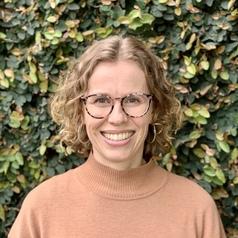
Ariaan Purich
Lecturer in Climate Variability and Change, Monash University
Ariaan is a lecturer in the School of Earth, Atmosphere and Environment at Monash University. She is interested in understanding coupled ocean-atmosphere-sea ice interactions across the Southern Hemisphere, with a particular focus on Antarctic and Southern Ocean climate variability and change. Her recent work includes investigating drivers of the current low sea ice around Antarctica and examining the sensitivity of climate responses to different Antarctic meltwater projections.
Ariaan previously held post-doctoral research positions in the ARC Specical Research Initiative Securing Antarctica's Environmental Future, and in the ARC Centre of Excellence for Climate Extremes. Ariaan submitted her PhD in 2018, undertaken at UNSW and CSIRO, where she investigated drivers of recent Antarctic sea ice and surface temperature trends in both observations and climate models. Prior to this, Ariaan worked at CSIRO, and completed her MSc at McGill University, where her research focussed on understanding drivers of precipitation changes across the Southern Ocean and Australia, and heat waves across Australia.
Less ![]()
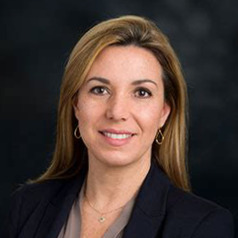
Ariadne Letra
Professor of Dental Medicine, University of Pittsburgh
Dr. Ariadne Letra is a professor in the Departments of Oral and Craniofacial Sciences, Endodontics, and a member of the Center for Craniofacial and Dental Genetics. She is a dentist-scientist, with a certificate and MS degree in endodontics, and a PhD degree in oral biology. Dr. Letra first came to Pitt Dental Medicine as a postdoctoral fellow in 2006 and in 2009 became assistant professor in the Department of Oral Biology.
Dr. Letra’s research focuses on understanding the cellular and molecular mechanisms underlying complex craniofacial and oral disorders and diseases. Her primary work involves gene discovery studies of cleft lip/palate, tooth agenesis, and apical periodontitis. By combining human genetics with in vitro and in vivo model systems, work from Dr. Letra’s group has elucidated numerous molecular players underlying these conditions. Another aspect of Dr. Letra’s work focuses on identifying shared genetic variants potentially contributing to oral health-systemic health connections. Her research has been funded by the National Institutes of Health, American Association of Endodontists Foundation (AAEF), and American Association of Orthodontists Foundation.
Dr. Letra is a member of the American Association of Endodontists (AAE) and former chair of the AAE Research and Scientific Affairs Committee. She is a member of the American Association for Dental, Oral, and Craniofacial Research (AADOCR), International Association for Dental Research (IADR), American Dental Education Association (ADEA) in which she serves/has served on numerous committees and leadership roles. She is also a member of the American Association of Human Genetics (ASHG) and the European Society of Human Genetics (ESHG).
Dr. Letra is associate editor for the Journal of Endodontics and is on the editorial board team of the Journal of Dental Research and the Journal Dental Research Clinical and Translational Research, as well as other scientific journals in the dental and medical fields.
From 2011-2022, Dr. Letra was on faculty at UTHealth School of Dentistry at Houston Department of Diagnostic and Biomedical Sciences, Endodontics, and Center for Craniofacial Research.
Less ![]()
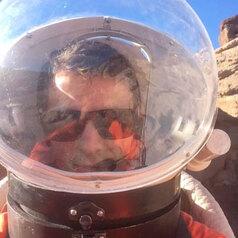
Arian Anderson
Emergency Medicine Physician, University of Colorado Anschutz Medical Campus
Arian is an Emergency Medicine Physician at the University of Colorado School of Medicine and a Clinical Researcher at NASA with the Exploration Medical Capabilities team. He grew up in Seattle, Washington and attended the University of Colorado School of Medicine and the Denver Health Residency in Emergency Medicine.
Less ![]()
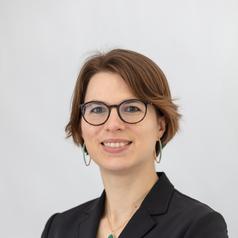
Ariane Millot
Research Associate in Energy Systems Modelling, Imperial College London
Ariane Millot is a Research Associate at Imperial College London. Her research focuses on energy system modelling and the analysis of the economic and social impacts of the energy transition. She is supporting the Climate Compatible Growth (CCG) programme, which aims to help low and middle-income countries achieve low-carbon development pathways while meeting their sustainable development goals. She has a PhD in energy modelling from Mines Paris – PSL, where she developed scenarios for the French energy transition using a bottom-up optimization model (TIMES). She also has experience working at the International Energy Agency on the buildings sector for the World Energy Outlook, where she contributed to several reports including the special Net Zero report.
Less ![]()
- Market Data























